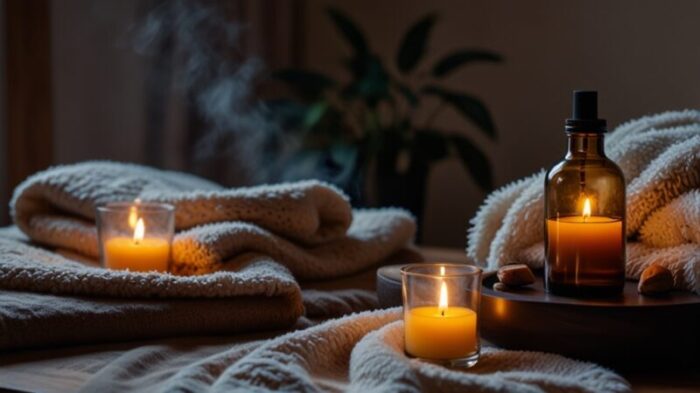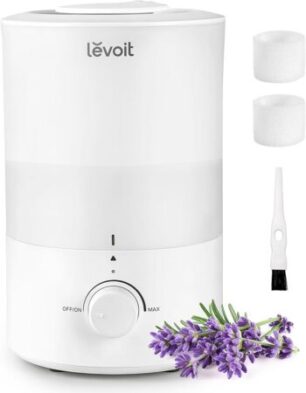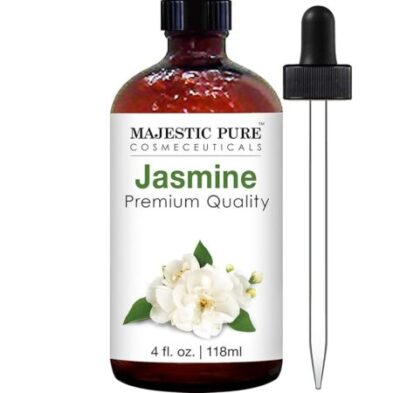Jasmine oil aromatherapy benefits: Jasmine oil is one of the most valued essential oils in aromatherapy due to its potent therapeutic properties and beautiful fragrance. Extracted from the flowers of the jasmine plant, this oil has been used for centuries for both its physical and emotional healing benefits. Its luxurious floral scent is known to reduce stress, promote relaxation, improve sleep, and enhance overall well-being. In this article, we will explore the comprehensive benefits of jasmine oil in aromatherapy, how it works, and how you can incorporate it into your daily routine to maximize its effects on stress relief and sleep improvement.
Understanding Jasmine Oil
Jasmine oil is extracted from the flowers of the Jasminum officinale plant, often referred to as the “Queen of the Night” due to its intense fragrance that becomes most prominent after sunset. The oil is obtained either through solvent extraction or steam distillation, although the former is more common for delicate flowers like jasmine. The end product is a rich, floral oil that is highly valued in both the perfume industry and holistic health practices. Jasmine oil contains several active compounds such as benzyl acetate, linalool, and benzyl benzoate, which contribute to its therapeutic properties.
The Key Benefits of Jasmine Oil in Aromatherapy
Stress Relief
Jasmine oil is widely known for its ability to reduce stress and anxiety levels. Its soothing aroma interacts with the brain’s limbic system, the part responsible for emotions, memory, and mood regulation. Inhalation of jasmine oil stimulates the release of feel-good hormones like serotonin, which can help alleviate feelings of stress and tension. Studies have shown that jasmine oil aromatherapy can lower cortisol levels, the hormone responsible for stress, leading to a more relaxed state of mind.
How to Use Jasmine Oil for Stress Relief
- Diffuser: Add 5–10 drops of jasmine oil to a diffuser and let the scent permeate your living space. The calming aroma will help reduce stress after a long day.
- Inhalation: Simply inhale the oil directly from the bottle or apply a drop on a cotton ball and take deep breaths to feel its immediate calming effects.
2. Enhancing Mood and Reducing Anxiety
Apart from its stress-relieving properties, jasmine oil is also known for its mood-enhancing capabilities. Jasmine’s floral scent has a positive impact on the brain, reducing symptoms of anxiety, depression, and irritability. It works as a mild sedative and an antidepressant by influencing the brain’s GABA receptors, which regulate feelings of calmness and relaxation.
A study conducted on individuals suffering from chronic stress found that those who inhaled jasmine oil regularly showed significant improvement in their mood and emotional well-being. They reported feeling more energized, uplifted, and less anxious after aromatherapy sessions with jasmine oil.

3. Improving Sleep Quality
Sleep disorders are often linked to stress and anxiety, and jasmine oil can be an effective natural remedy to promote restful sleep. Its sedative properties calm the mind, reduce tension, and help in falling asleep faster. Unlike other sleep aids, jasmine oil doesn’t cause grogginess upon waking but instead leaves you feeling refreshed and well-rested.
How Jasmine Oil Promotes Better Sleep
- Diffuse Before Bed: Adding a few drops of jasmine oil to your diffuser 30 minutes before bedtime can create a peaceful ambiance that promotes relaxation.
- Linen Spray: Mix jasmine oil with water and spray it onto your pillow or bed linens. The gentle aroma can work wonders to help you unwind and drift off to sleep.
- Topical Application: For a more direct approach, blend jasmine oil with a carrier oil and massage it onto your temples, neck, and wrists before bedtime.
4. Skin Benefits
In addition to its emotional and psychological benefits, jasmine oil has powerful effects on the skin. It is known for its anti-inflammatory, antiseptic, and moisturizing properties, making it a popular choice in skincare formulations. Jasmine oil can be used to treat dry skin, reduce blemishes, and improve skin elasticity, which helps in keeping the skin youthful.
How to Use Jasmine Oil for Skin Care
- Moisturizer: Add a few drops of jasmine oil to your regular moisturizer or facial serum to improve hydration and skin elasticity.
- Acne Treatment: Due to its antiseptic properties, jasmine oil can help reduce acne and prevent future breakouts by keeping the skin clean and free from bacteria.
- Scar Healing: Jasmine oil can promote faster healing of scars and stretch marks. Apply it topically by diluting with a carrier oil, such as coconut or almond oil.
The Science Behind Jasmine Oil’s Efficacy
Multiple scientific studies support the efficacy of jasmine oil in aromatherapy. A 2013 study published in the Journal of Health Research found that inhalation of jasmine oil significantly increased feelings of arousal and positive emotions compared to other essential oils like lavender. The study concluded that jasmine oil stimulates the brain’s beta waves, which are associated with alertness and relaxation, making it effective for both stress relief and mood enhancement.
Another study published in Natural Product Communications in 2010 showed that jasmine oil exhibits anti-inflammatory properties, making it useful for skin conditions like eczema and psoriasis. Additionally, the study found that jasmine oil contains natural compounds that help in wound healing and scar reduction.
Different Methods of Using Jasmine Oil in Aromatherapy
There are several ways to incorporate jasmine oil into your aromatherapy routine, depending on your specific needs and preferences. Here are some popular methods:
Diffusion: One of the most common ways to use jasmine oil is by adding it to a diffuser. This allows the oil to disperse into the air, filling your space with its calming scent. Use 5–10 drops in an essential oil diffuser for optimal results.
Inhalation: For immediate stress relief or mood enhancement, jasmine oil can be inhaled directly from the bottle or applied to a tissue or cotton ball. Inhale deeply for several seconds to feel the calming effects.
Topical Application: Jasmine oil can be applied to the skin when diluted with a carrier oil, such as jojoba or almond oil. This method is especially useful for targeting specific areas of tension or pain, as well as improving skin conditions.
Bath: Adding a few drops of jasmine oil to a warm bath can create a luxurious, spa-like experience. The warm water will enhance the absorption of the oil into the skin, promoting relaxation and soothing sore muscles.
Massage: Jasmine oil can be blended with other essential oils like lavender or chamomile and applied during a massage to promote relaxation and alleviate stress.


Combining Jasmine Oil with Other Essential Oils
Jasmine oil pairs well with many other essential oils, which can enhance its effects depending on your desired outcome. Here are some popular combinations:
- Jasmine and Lavender: A powerful combination for stress relief and sleep enhancement. Lavender’s calming properties complement jasmine’s mood-enhancing effects.
- Jasmine and Rose: Both oils are known for their aphrodisiac qualities. This blend can be used to create a romantic atmosphere or enhance feelings of love and intimacy.
- Jasmine and Sandalwood: This combination promotes mental clarity and emotional balance. Sandalwood’s grounding properties complement jasmine’s uplifting aroma, making it ideal for meditation or yoga.
- Jasmine and Chamomile: A soothing blend that works well for relaxation and reducing anxiety. Chamomile enhances jasmine’s sedative properties, making it a great option for improving sleep quality.
Best Pick for Jasmine Oil
Safety Precautions When Using Jasmine Oil
While jasmine oil is generally considered safe for most people, there are a few precautions to keep in mind:
- Dilution: Always dilute jasmine oil with a carrier oil before applying it to the skin to avoid irritation. The recommended dilution ratio is 3–5 drops of essential oil per tablespoon of carrier oil.
- Allergies: Conduct a patch test on a small area of skin before using jasmine oil topically. If any redness or irritation occurs, discontinue use.
- Pregnancy and Nursing: Pregnant or nursing women should consult a healthcare professional before using jasmine oil, as it can cause uterine contractions in some cases.
- Children and Pets: Jasmine oil should be used with caution around young children and pets, as their sensitivity to essential oils may be higher.


Jasmine oil is a versatile and powerful essential oil that offers a wide range of benefits for both physical and emotional health. Whether you’re seeking stress relief, better sleep, skin benefits, or a natural aphrodisiac, jasmine oil has something to offer. By incorporating it into your aromatherapy routine through diffusion, topical application, or inhalation, you can experience its calming, mood-enhancing, and healing properties. With its long-standing reputation in holistic health and wellness, jasmine oil continues to be a natural remedy that promotes relaxation and well-being in a variety of ways.
FAQs about Jasmine Oil Aromatherapy Benefits
1. Can jasmine oil be used directly on the skin?
No, jasmine oil should always be diluted with a carrier oil before applying to the skin to avoid irritation.
2. Is jasmine oil safe for children?
Consult with a healthcare professional before using jasmine oil on children, especially for those under the age of six.
3. Can I use jasmine oil with other essential oils?
Yes, jasmine oil blends well with other essential oils like lavender, chamomile, and sandalwood for enhanced relaxation and stress relief.
4. How long does it take for jasmine oil to improve sleep?
The effects can vary from person to person, but many people report improved sleep after using jasmine oil consistently for a few nights.
5. Can jasmine oil help with anxiety?
Yes, jasmine oil is known for its calming and anti-anxiety properties, making it effective in reducing stress and promoting emotional well-being.
6. How often can I use jasmine oil in aromatherapy?
Jasmine oil can be used daily in moderation, but it’s essential to rotate oils or take breaks occasionally to avoid sensitization.





















